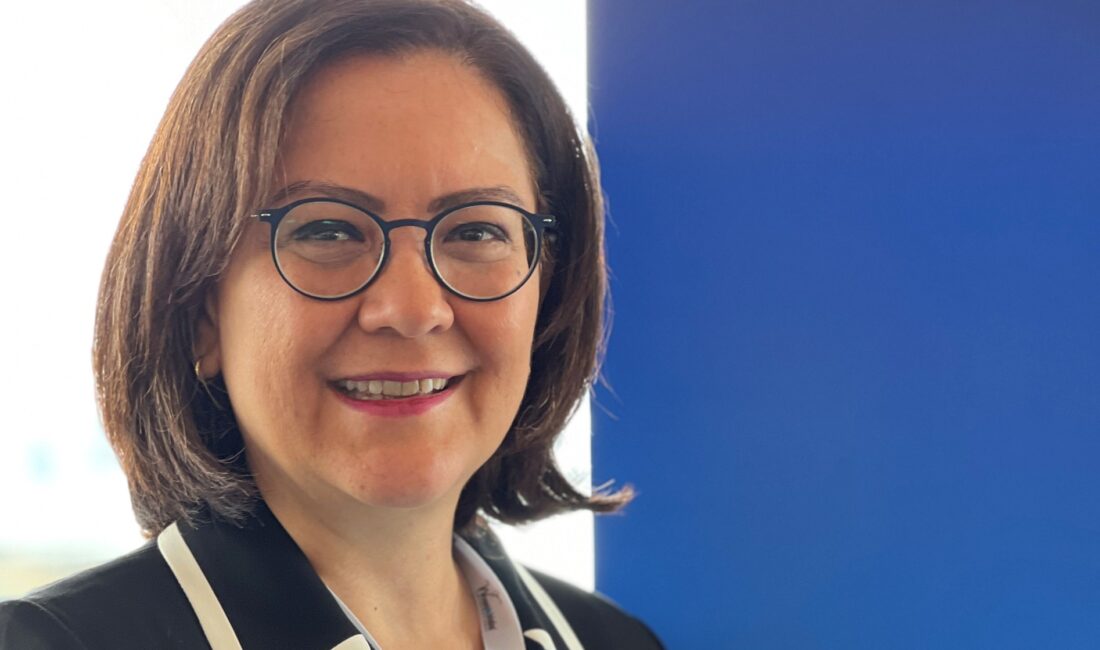Let’s start with your story. Where did you grow up, and how did your upbringing shape who you are today?
I was born and raised in Mersin. After completing my primary, middle, and high school education there, I moved to Istanbul to study Industrial Engineering at Boğaziçi University. After graduating, I started working at Turkish Airlines and stayed in Istanbul. Growing up in a family of teachers, I had a disciplined and determined educational journey, and with these qualities, I have achieved success over more than 30 years in my career.
What drew you to aviation? Was there a particular moment or influence that sparked your interest in the industry?
After graduating from university, I was in a job search period when a manager from Turkish Airlines reached out to me through my CV during my application to another company. I suddenly found myself at THY. Until that day, I had no knowledge about aviation. Just one month after graduation, I started my first job at THY and was introduced to aviation. From that day on, I loved the sector and have never left it.
Have you experienced a moment where you thought, “I did it”? If so, how did it feel or look?
Three years after joining the company, in 1997, I was assigned to open the Seoul office in Korea. This assignment was very important to me because flights were scheduled to start in three months, and I had no prior experience. I had to build a team from scratch, complete all the opening procedures, and make the line ready for operation. At that time, I became the youngest overseas manager appointed. I worked with all my strength to maintain the trust placed in me, and I succeeded. We organized a very successful route launch and started our Seoul flights. We even signed our first codeshare agreement with Asiana Airlines.
For me, this role was a turning point in my career. Being young, inexperienced, and in a country whose language I did not know, I managed to complete the route opening under limited conditions. After Korea, I had the mindset that I could handle any task given to me. In short, I am always grateful to the managers who trusted me and entrusted me with this responsibility; this trust opened the way for my career and marked the beginning of my leadership journey at Turkish Airlines.
Who is a woman leader who has had a meaningful impact on you, and why?
When I first joined the company, we were a newly formed team. In the Route Management Department, our head, Nesligül Doğançay, was my first manager and taught us all aviation terms and the industry. Later, I had several other female managers, and I learned a lot from all of them. However, as you know, the sector still needs more female leaders and managers. In this regard, your “Women in Aviation” initiative is very valuable, and I thank you for giving me this opportunity.
What advice or motivation would you give to women trying to build a successful career while balancing work and personal life, especially in a demanding sector like aviation?
I worked in a department with a very intense workload and frequent travel; family support is extremely important. Without the support of my husband and son, I could not have sustained this level of success in my career. Everyone has to make sacrifices. I was able to plan my schedule so that I could return from long trips and take my son to the theater or other events on the same day without getting tired. From my perspective, planning time for both work and personal life, not being solely work-focused, finding peace with family, and letting some things take their natural course are very important.
What has been your most unforgettable experience in the aviation industry? (Positive or negative)
My most unforgettable experience was successfully completing the route launch in Korea within three months despite all the challenges. Another significant day was being on the first flight from Atatürk Airport to Istanbul Airport during its opening.
Additionally, during my 31-year career at THY, witnessing the transformation from the era of paper tickets and manual systems without the internet and email to today’s advanced aviation technology has been a meaningful experience for me.
What changes would you like to see in aviation today or in the future?
Aviation is a global and unique industry; it can feel like the world is in your hands. To allow more young people to experience this feeling, it is very important to increase aviation programs at universities. My biggest expectation is to increase the number of educational institutions where a specialized workforce for each segment of aviation can be trained and where experienced professionals can pass on their knowledge.
Also, more female leaders and managers need to be supported in the industry. This is a key focus for IATA and airlines globally. I hope all stakeholders support IATA’s “25by2025” initiative.
Lastly, thank you for featuring me in this edition of Women in Aviation.



